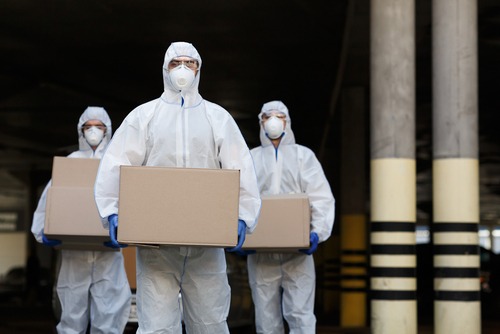
According to a new study by the International Chamber of Commerce Research Foundation, the global economy stands to lose as much as $9.2 trillion if governments fail to ensure developing economy access to COVID-19 vaccines.
The study demonstrates the economic case to invest in the Access to COVID-19 Tools (ACT) Accelerator, an initiative to accelerate the development and equitable access to COVID-19 tests, treatments, and vaccines.
A $27.2 billion investment on the part of advanced economies – the current funding shortfall to fully capitalize the ACT Accelerator and its vaccine pillar COVAX – can generate returns as high as 166x the investment.
“I believe the world faces a catastrophic moral failure in equal access to the tools to combat the pandemic. This research shows a potentially catastrophic economic failure. The progress made by the ACT Accelerator shows solidarity in beating this virus,” Dr. Tedros Adhanom Ghebreyesus, director-general of the World Health Organization (WHO), said. “The longer we wait to provide vaccines, tests, and treatments to all countries, the faster the virus will take hold, the potential for more variants will emerge, the greater the chance today’s vaccines could become ineffective, and the harder it will be for all countries to recover. Truly, no-one is safe until everyone is safe.”
The research found that those economies and sectors with a high degree of international exposure will bear the brunt of economic losses. Specifically, it said the economic costs borne by wealthy countries in the absence of multilateral coordination guaranteeing vaccine access and distribution range between $203 billion and $5 trillion, depending on the strength of trade and international production network relations. The ACT Accelerator costs about $38 billion.
“No economy can fully recover until we have global equitable access to vaccines, therapeutics, and diagnostics. The path we are on leads to less growth, more deaths, and a longer economic recovery,” Ṣebnem Kalemli-Özcan, one of the study’s authors and Neil Moskowitz Endowed Professor of Economics and Finance at the University of Maryland, College Park, said.
Further, if advanced economies continue to prioritize vaccination of their susceptible populations without ensuring equitable vaccination for developing economies, the total cost to the world varies between $1.5 to $9.2 trillion. The expected economic cost to the United States is between 45 billion and $1.38 trillion.
“This report proves the economic interdependencies of developed and developing countries and the essential requirement that we work together to multilaterally coordinate the distribution of vaccines, tests, and therapeutics. We in the business community pledge to do our part to facilitate this ethical, humanitarian and economic solution to the pandemic as quickly as possible,” ICC Research Foundation Chair Terry McGraw said.




